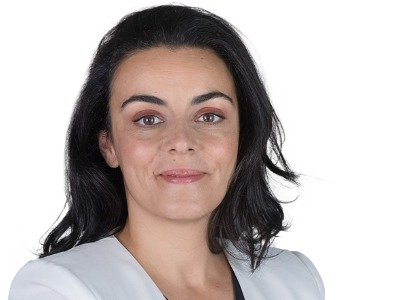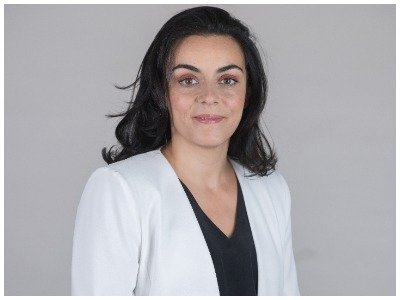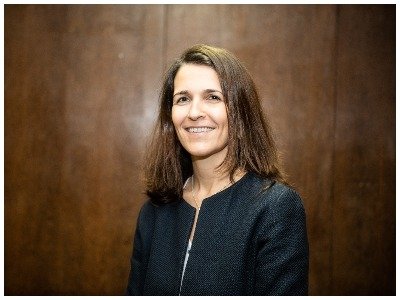Three billion euro lady

One of our lead interviews in this special edition aimed at showcasing female talent in the legal sector focuses on VdA M&A partner Cláudia da Cruz Almeida. In 2020, Cláudia was the top female dealmaker in Portugal, with six transactions totalling €3.8 billion. Cláudia joined VdA in 1999 and, during a career spanning over two decades, has been involved in a number of transactions, mainly focused on acquisition finance, corporate finance and acquisitions and sales of companies. Iberian Lawyer spoke with Cláudia about her experience of being a successful woman in law, how she sees the development of gender equality and the culture at VdA.
 When a lawyer manages their career in a large firm, does one have to compromise on the criteria of equality with which previously managed in their personal and professional life? What do you have to give up? Do you think that in recent years things have evolved positively in this regard? If so, how can we notice these changes regarding the Gender Gap?
When a lawyer manages their career in a large firm, does one have to compromise on the criteria of equality with which previously managed in their personal and professional life? What do you have to give up? Do you think that in recent years things have evolved positively in this regard? If so, how can we notice these changes regarding the Gender Gap?
A lawyer in a top tier law firm faces, in my view, all challenges that a top professional in any professional services organisation faces. We are service providers working for prestigious companies and organisations which resort to us to be advised on complex and demanding matters, usually with tight deadlines. This means that a career in this type of firm is a lifestyle choice, based on the acknowledgement that long and unpredictable hours come with the territory of a successful and professionally fulfilling career that you love. The individual challenge lawyers must face is to find their balance between the demands of their professional life and their personal desires and needs. There is no one-size-fits-all approach to this balance, as it depends a lot on the way personal priorities are defined and on what each person needs to be a fulfilled individual in both dimensions.
Things in this regard have evolved quite a lot in recent years, driven by cultural and generational changes and by law firms’ increasing awareness of the importance of fostering an environment where people can thrive both professionally and personally.
In a professional sector with such demanding and constantly evolving performance standards, how does this apply to the top firms in Portugal? How do you create an environment where difference is valued that encourages working and leading in an inclusive way?
Law firms came to realise the intrinsic value of gender diversity in their teams and progressively dedicating more time to designing policies and tools to address work-life balance and avoid losing female talent that would otherwise leave to pursue a different career. In this context, we often focus on the challenge of retaining female talent, but I would say that these concerns apply in general to retaining people, regardless of gender, that face challenges when balancing the demands of the profession with their personal life.
In my view, the creation of an environment where lawyers can achieve a work-life balance has to be desired and valued by law firms from a top-down perspective. Law firm management should create the necessary tools and encourage the leadership structure to implement them. The last important link in this chain are the individual lawyers, who should be able to identify their needs and communicate them openly and effectively to their team leaders so that they may find the best overall balance.
Is it still an unwritten rule that only those who do not have family responsibilities can “work hard”? These new times, however, do not seem to go that way, and the pandemic has forced us all to look at things differently. Have things changed forever? How do you deal with this issue of family and gender equality at VdA? Tell us about your personal experience as a VdA partner, and how you have been able to balance professional and personal achievements?
I would say that such an unwritten rule is something of the past, at least as far as the Portuguese market is concerned. It is an undeniable fact that those with family responsibilities have, and should, split their time between work and family. This does not, however, mean that only lawyers without family responsibilities work hard. These topics and their impact depend largely on the culture of the organisations and of the example set by their leadership.
Speaking from my professional experience, I joined VdA straight out of law school in 1999 and found the firm to have a very strong culture that combines work ethic with a deep respect for the personal development of their lawyers. I found a firm where the partners (male or female) balance a successful and demanding personal career with their family lives and where there were very inspiring female role models in that respect. In this context, I was fortunate to have the opportunity to develop my career without ever feeling that I had fewer opportunities or prospects due to my gender. I was also very fortunate to have the full support from my family, which understands long and unpredictable hours come with the territory and are always available to help. In fact, I managed to pursue a successful and demanding career while maintaining an almost 20-year marriage and raising three children. My balance is struck by navigating at sight. Happiness, which for me is a combination of professional and personal fulfilment, is the horizon. The way I get to the horizon is by avoiding unrealistic expectations – such as the expectation that it is possible to be involved in the most professionally fulfilling projects while working on a predictable 9-5 schedule, setting the right priorities and making sure that I am always there for my family when it really matters. Having two or three great travel projects on the horizon also helps in this balance and creates great experiences for myself and all the family.
Within the legal profession, do you think being a lawyer in a prestigious firm is more demanding than working as an in-house lawyer?
I believe a lawyer in a prestigious law firm faces different demands from those faced by in-house lawyers, but we cannot say that one role is more demanding than the other, especially if we are comparing prestigious law firms with prestigious companies. There is often a perception that going in-house is an obvious career move for lawyers, often female lawyers, that are tired of long working hours and desire a better work-life balance. I consider this to be one of the utopias of the legal profession.
It is true that an in-house role provides a break from billable hour targets, managing a multitude of external clients and handling the pressure to be a rainmaker. But, in fact, from my experience, in-house legal teams also work long (sometimes unpredictable, depending on the demands of company projects) hours, manage a range of internal clients and handle the pressures associated with the roles of team leader, legal manager and business advisor.
An additional hurdle that in-house lawyers also face is that they often have less means (from an IT, database and professional support standpoint) than those available to law firm lawyers and have a more limited network of lawyers with whom they can easily meet up to discuss legal and industry developments and provide informal support. Actually, the realisation that in-house lawyers in Portugal faced these issues and could benefit from expanding their networks of other in-house lawyers led VdA to create its Legal Club project, which is precisely a forum where in-house lawyers are invited to events where they can network with fellow in-house lawyers and discuss the industry and legal developments, exchange experiences and address other topics of relevance to legal leaders and managers. The feedback of participants has been great, and we are very happy to be able to help in-house lawyers to face these challenges.
In this context, I would say that the choice for an in-house career path should not be driven by the desire to work less hours or have fewer professional responsibilities. It should be driven by a desire to take a different challenge and taken with a good perception of the skillset that must be developed to manage the demands of being a leader/manager that has the client sitting right outside the door.
Interview by Michael Heron.
To read the interview in full please download issue N.102 here.












